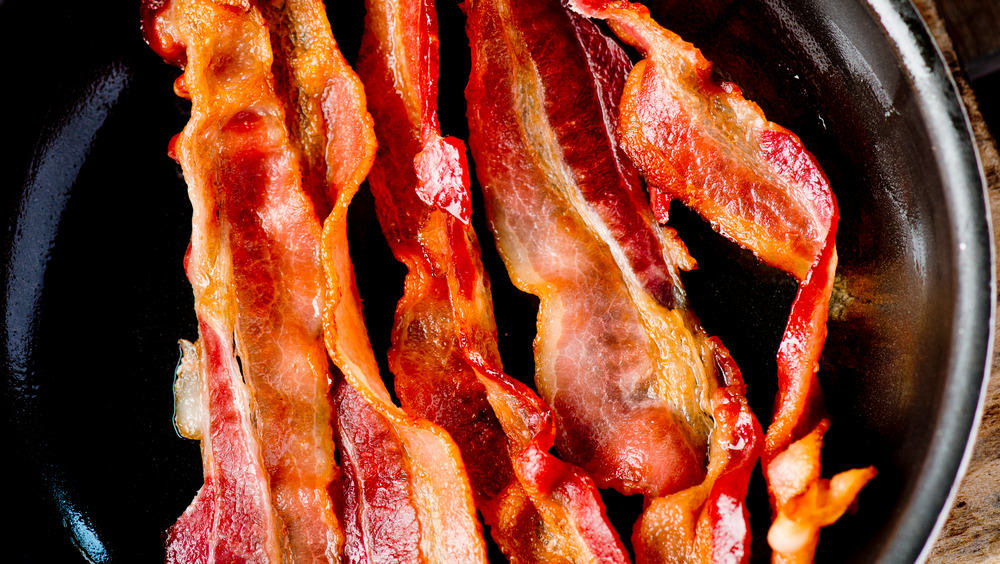Is Bacon Really Unhealthy?
Bacon feels like the perfect partner to many. The salty addition to your pile of syrup soaked pancakes. The savory match to your fluffy omelet. And the smoky bits to sprinkle on a cheesy pizza. Are you drooling yet? Because we are. And like the rest of America, our love affair with bacon would only be made less risque if we found out it wasn't as unhealthy as the reputation it carries. So here is the truth, the whole truth, and nothing but the bacon-y truth.
The reputation our favorite brunch addition has for being unhealthy is sadly true. According to Healthline, bacon is a processed meat that is often cured with chemical nitrates. This is done to enhance shelf life, its color, and its taste. That's all well and good, but the problem with nitrates is that when they are exposed to high heat, like when thrown on the skillet for example, they form potentially harmful, cancer-causing carcinogens. But on a lighter, crispier note, the amount of nitrates used when curing bacon has been significantly reduced from the levels used in the past.
Another health concern over bacon is the amount of salt. Time states that four slices of thick-cut bacon have 880 mg of sodium, which equals a whopping 40 percent of our recommended daily values.
The truth is in the high sodium and saturated fat levels
Lisa Cimperman, a registered dietitian at University Hospitals Cleveland Medical Center, shares with Time why we shouldn't overdo it on this mineral substance that is often readily found available on our dining room tables, next to our stoves, and in our bacon. "The reason we recommend a limit on sodium is because it's associated with a risk of high blood pressure as well as stroke," she says.
In addition to the added nitrates and high sodium levels, WebMD tells us that bacon is high in fat. Most of us knew this by just looking at the visible fatty edges on the strip, but perhaps not to the full extent — a hefty 68 percent of bacon's calories come from fat, and almost half of that fat is saturated. Cimperman explains to Time that the health effects of saturated fat aren't as evident, "but what we do know is that diets high in saturated fat have been associated with an increased risk of heart disease," she says.
Ok, so we now know our beloved bacon may not be the best choice for our health, but there are ways to enjoy this popular breakfast item. You can choose reduced-fat options or decide to eat half your original portion. You don't have to break up with this perfect partner — instead, maybe just not make it a daily love affair.


